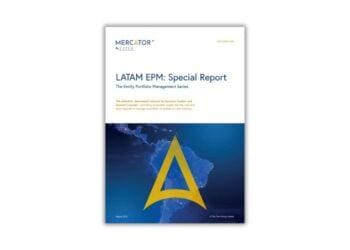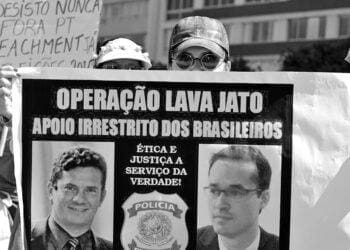This article was republished with permission from FCPAméricas Blog, for which Matteson Ellis is founder, editor and regular contributor.
FCPA internal investigations are a hot topic today in Latin America. The region is seeing a dramatic increase in focus on investigating potential wrongdoing within large organizations. Indeed, companies throughout the region are conducting internal reviews of significant FCPA compliance questions, including headline cases like Petrobras, Embraer, Eletrobras and SQM. The U.S. Department of Justice’s recent announcement of its FCPA pilot program also serves to elevate the emphasis on internal investigations. This is because a key component of credit under the program is cooperation, which often means conducting one’s own internal investigation and reporting the findings to the authorities.
FCPAméricas has written previously about important features of internal investigations, such as the rationale behind a company investigating itself, maintaining the attorney-client privilege, establishing credibility with FCPA enforcement officials, the reasons investigations are so expensive, best practices for conducting investigation interviews and voluntary disclosure considerations. Here are other key issues that companies conducting internal investigations in Latin America are facing today:
Determining whether an issue is serious enough to warrant an independent investigation.
FCPAméricas has written previously about when to use outside counsel for FCPA investigations. Companies working in Latin America continue to struggle with this question. When doing so, they consider factors like the financial significance of the potential misconduct, whether the allegations touch top management or include structural issues that would make an in-house investigation inappropriate or conflicted, whether the magnitude of an investigation would swamp in-house resources and whether there are technical or other issues that would challenge in-house ability.
Scoping the investigation appropriately.
One of the biggest challenges to investigations is designing the scope of the review so that it is sufficiently thorough while not overly broad. This effort can have serious implications on the credibility of the investigation, as well as the costs. When the U.S. government is involved, companies must make sure they reach an agreement with authorities on a reasonable strategy.
Preserving documents at the right time.
In Latin America, many companies face the reality that, as soon as they issue a document-hold request, employees are likely to start destroying documents. At the same time, without directives to employees to preserve documents, companies leave themselves vulnerable to inadvertent destruction of key materials. Companies must also put their employees on notice as to company policy so they can hold responsible any employees who do engage in destruction. Finding the right balance on timing can be tricky.
Cost-effective collection, hosting and search of electronic documents.
The most expensive aspect of an internal investigation is usually the review of documents and associated technology costs. Oftentimes this is an unavoidable reality of an investigation – to understand the full story of what occurred, a company must reconstruct the history of communications and activities. To make this process more manageable, companies in Latin America are learning that not all information that is preserved needs to be collected, and not all information collected must be reviewed.
Immediate remediation.
The highest priority when a company receives a credible allegation of an FCPA violation is to make sure the violations cease – to “stop the bleeding.” As the investigation unfolds and findings come to light, companies must also take steps to start remediating evident compliance failures in real time. No longer is it sufficient to wait until the investigation is complete to begin remediation.
Managing external audiences.
During internal investigations, companies must often manage the expectations and requirements of outside audiences. FCPA authorities might be involved who give input and require periodic updates. Publicly-traded companies must consider securities disclosure issues carefully. In doing so, they should consult with disclosure, not investigative, counsel. How disclosures are made to external auditors must also be considered carefully, especially at a time when auditors are increasingly aggressive in their FCPA investigation oversight.
The opinions expressed in this post are those of the author in his or her individual capacity and do not necessarily represent the views of anyone else, including the entities with which the author is affiliated, the author`s employers, other contributors, FCPAméricas or its advertisers. The information in the FCPAméricas blog is intended for public discussion and educational purposes only. It is not intended to provide legal advice to its readers and does not create an attorney-client relationship. It does not seek to describe or convey the quality of legal services. FCPAméricas encourages readers to seek qualified legal counsel regarding anti-corruption laws or any other legal issue. FCPAméricas gives permission to link, post, distribute or reference this article for any lawful purpose, provided attribution is made to the author and to FCPAméricas LLC.



 Matteson Ellis serves as Special Counsel to the FCPA and International Anti-Corruption practice group of Miller & Chevalier in Washington, DC. He is also founder and principal of Matteson Ellis Law PLLC, a law firm focusing on FCPA compliance and enforcement. He has extensive experience in a broad range of international anti-corruption areas. Previously, he worked with the anti-corruption and anti-fraud investigations and sanctions proceedings unit at The World Bank.
Mr. Ellis has helped build compliance programs associated with some of the largest FCPA settlements to date; performed internal investigations in more than 20 countries throughout the Americas, Asia, Europe and Africa considered “high corruption risk” by international monitoring organizations; investigated fraud and corruption and supported administrative sanctions and debarment proceedings for The World Bank and The Inter-American Development Bank; and is fluent in Spanish and Portuguese.
Mr. Ellis focuses particularly on the Americas, having spent several years in the region working for a Fortune 50 multinational corporation and a government ethics watchdog group. He regularly speaks on corruption matters throughout the region and is editor of the FCPAméricas Blog.
He has worked with every facet of FCPA enforcement and compliance, including legal analysis, internal investigations, third party due diligence, transactional due diligence, anti-corruption policy drafting, compliance training, compliance audits, corruption risk assessments, voluntary disclosures to the U.S. government and resolutions with the U.S. government. He has conducted anti-corruption enforcement and compliance work in the following sectors: agriculture, construction, defense, energy/oil and gas, engineering, financial services, medical devices, mining, pharmaceuticals, gaming, roads/infrastructure and technology.
Mr. Ellis received his law degree, cum laude, from Georgetown University Law Center, his masters in foreign affairs from Georgetown’s School of Foreign Service, and his B.A. from Dartmouth College. He co-founded and serves as chairman of the board of
Matteson Ellis serves as Special Counsel to the FCPA and International Anti-Corruption practice group of Miller & Chevalier in Washington, DC. He is also founder and principal of Matteson Ellis Law PLLC, a law firm focusing on FCPA compliance and enforcement. He has extensive experience in a broad range of international anti-corruption areas. Previously, he worked with the anti-corruption and anti-fraud investigations and sanctions proceedings unit at The World Bank.
Mr. Ellis has helped build compliance programs associated with some of the largest FCPA settlements to date; performed internal investigations in more than 20 countries throughout the Americas, Asia, Europe and Africa considered “high corruption risk” by international monitoring organizations; investigated fraud and corruption and supported administrative sanctions and debarment proceedings for The World Bank and The Inter-American Development Bank; and is fluent in Spanish and Portuguese.
Mr. Ellis focuses particularly on the Americas, having spent several years in the region working for a Fortune 50 multinational corporation and a government ethics watchdog group. He regularly speaks on corruption matters throughout the region and is editor of the FCPAméricas Blog.
He has worked with every facet of FCPA enforcement and compliance, including legal analysis, internal investigations, third party due diligence, transactional due diligence, anti-corruption policy drafting, compliance training, compliance audits, corruption risk assessments, voluntary disclosures to the U.S. government and resolutions with the U.S. government. He has conducted anti-corruption enforcement and compliance work in the following sectors: agriculture, construction, defense, energy/oil and gas, engineering, financial services, medical devices, mining, pharmaceuticals, gaming, roads/infrastructure and technology.
Mr. Ellis received his law degree, cum laude, from Georgetown University Law Center, his masters in foreign affairs from Georgetown’s School of Foreign Service, and his B.A. from Dartmouth College. He co-founded and serves as chairman of the board of 






